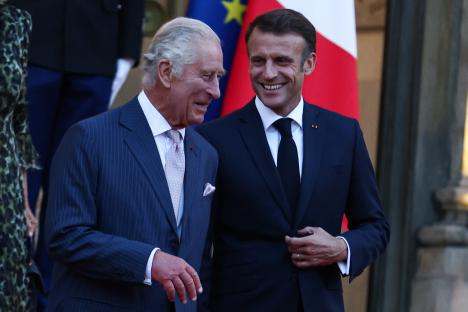Hong Kong democracy activist Joshua Wong was among four people who pleaded guilty on Friday of participating in an illegal assembly on June 4 last year to commemorate the 1989 crackdown on protesters in and around Beijing's Tiananmen Square.
It was the first time the vigil had been banned in the global financial hub, with police citing, as it did for all demonstrations last year, coronavirus restrictions on group gatherings. It is expected to face a similar fate this year.
Read more: Canada troubled by China's targeting of pro-democracy activists in Hong Kong
Still, tens of thousands of people lit candles across the city in what was largely a peaceful event last June, bar a brief skirmish with riot police in one neighborhood.
Wong, already in prison after he was found guilty of participating and organizing an unauthorized assembly during the mass 2019 pro-democracy protests, pleaded guilty in the District Court.
The other activists who pleaded guilty were Lester Shum, Jannelle Leung and Tiffany Yuen. Another activist, Eddie Chu, asked for an adjournment and his case will be heard on June 11, with 19 others facing similar charges.
The June 4 anniversary struck an especially sensitive nerve in the former British colony last year, falling just as Beijing prepared to introduce new security legislation which punishes anything China sees as subversion, secession, terrorism or collusion with foreign forces with up to life in prison.
While in prison, Wong was arrested in January on suspicion of breaking the new law, which was introduced in July 2020, by taking part in an unofficial vote to pick opposition candidates for a since-postponed election, which authorities describe as a “vicious plot” to “overthrow” the government.
This year, the June 4 event is particularly awkward for Beijing, which celebrates the 100th anniversary of the Communist Party. Hong Kong leader Carrie Lam, asked whether commemorating the victims of Tiananmen would violate the new security law, said this week it was important to show respect to the Party.
Read more: Hong Kong activist Joshua Wong sentenced to jail for 2019 anti-government protest
Commemorations of the Tiananmen crackdown are banned in mainland China, but Hong Kong traditionally held the largest vigils globally every year, having been promised certain freedoms when it returned to Chinese rule in 1997, including rights of expression and assembly.
China has never provided a full account of the 1989 Tiananmen Square violence. The death toll given by officials was about 300, most of them soldiers, but rights groups and witnesses say thousands of people may have died.
(Writing by Marius Zaharia, Editing by Raju Gopalakrishnan)




